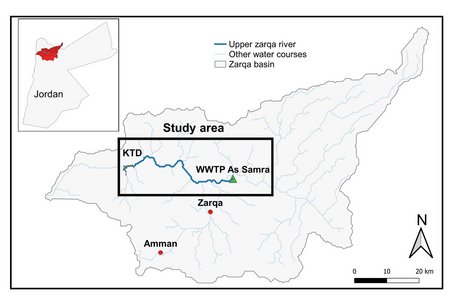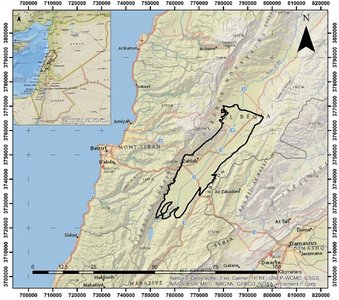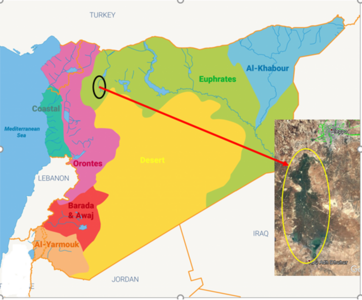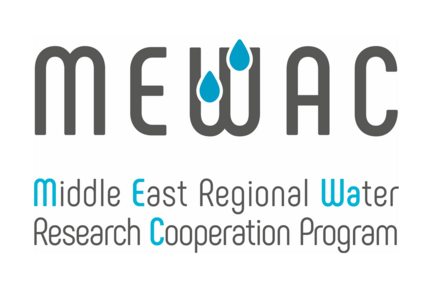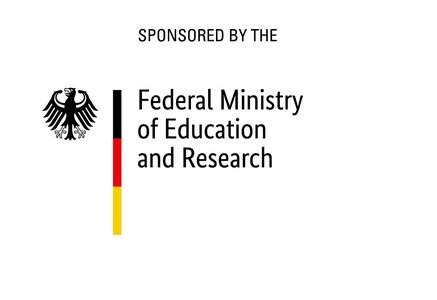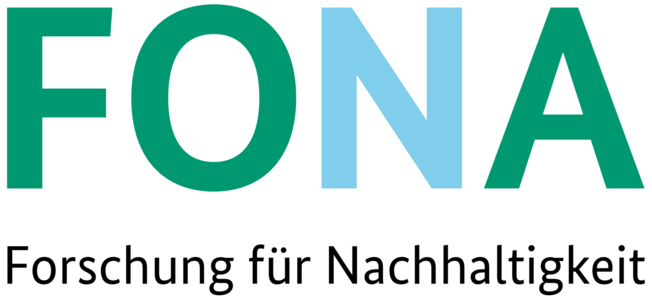MEWAC-FEMAR
Symposium on Managed Aquifer Recharge in Middle East, 19 November 2024, Amman, Jordan
In light of the increase in water demand and abstraction in many arid Middle Eastern countries, the symposium on managed aquifer recharge (MAR) will provide a perspective on MAR, including riverbank filtration (RBF) in the Middle East, highlight “open-source” model-based systems in context to MAR/RBF and present results from the MEWAC-FEMAR project on regional MAR/RBF case studies from Jordan, Lebanon and Syria and on associated/related topics. Download the event-flyer for more information and to register.
Application potential of groundwater recharge for a safe and sustainable water supply
The MEWAC-FEMAR project is funded by the German Federal Ministry of Education and Research (BMBF) under the “Middle East Regional Water Research Cooperation Program” (MEWAC). The overall aim of the project is to foster and contribute to the achievement of safe water supply in the Middle East through the promotion of Managed Aquifer Recharge (MAR) approaches. The project focuses on case studies from three countries characterized by mostly arid climate with low precipitation and high evaporation rates: Syria, Jordan and Lebanon. Especially in Jordan, rapidly increasing population has led to an increase in water use and has placed a large stress on the national water resources, particularly regarding groundwater. Lowering groundwater levels has led to drying of wells, land subsidence and water quality problems. In this context, the development of MAR applications is considered as an extremely important step to reduce the water deficit gap.
- To conduct a preliminary screening of areas that are potentially recommended for the development of managed aquifer recharge (MAR) applications using a GIS-based multi-criteria decision anaylsis and stakeholders consultations.
- Based on available data, to assess the suitability and potential impact of different techniques for MAR on the general water balance at basin scale with the aid of integrated hydrological models and their validation through stakeholders engagement.
- To evaluate the efficiency of selected MAR typologies such as river bank filtration and surface infiltration with conventional and unventional water at selected case study areas and to optimise the technological approach through experimental pilot projects.
- To foster the development of technical expertise in MAR in the target regions through the development and implementation of dedicated educational programmes for academia, early-career researchers, young professionals, enterprises, etc. Special focus will be laid of increasing the general awareness and acceptance for MAR among local authorities aimed at supporting the integration of these techniques in the regional development strategies.
- University of Applied Sciences Dresden, Division of Water Sciences, Prof. Thomas Grischek (HTWD, Project coordinator)
- Technical University Dresden, Institute of Groundwater Management, Dr. Thomas Reimann (TUD)
- Umweltbüro GmbH Vogtland, Dr. Carsten Leibenath
- Royal Scientific Society, Amman, Dr. Othman Almashaqbeh (RSS, Jordan)
- American University of Beirut, Dr. Joanna Doummar (AUB, Lebanon)
- University of Aleppo, Prof. Ahmed Alsheikh Kaddour (SUA, Syria)
Project activities & results
Education and training of the involved actors in all countries is a major focus of the project. At the German universities, training and further education of PhD students and graduates from the target regions takes place. Workshops on modeling and planning of MAR systems are organized with all partner institutions. In addition, an online training program is being developed. In combination of online tools and on-site courses, local experts - employees of water utilities and authorities - will be further supported to ensure the project continuation even after the end of the funding period. The project is oriented towards a long-term perspective. Both German universities offer international master's degree programs in water management and environmental engineering. Students with a connection to the target regions will be involved in the project work. Cooperation with the IAH Commission on Managed Aquifer Recharge, the INOWAS group at the TU Dresden, the DAAD Summer Schools on MAR at the HTW Dresden and the Dresden-Shiraz city partnership have already been initiated.
Syria is located in arid and semi-arid zones, where water scarcity is a major challenge for sustainable development. Most regions in Syria are dependent on groundwater resources for drinking water supply, also about 60% of all irrigated lands are supplied by groundwater. Records of groundwater tables indicate that groundwater resources are overexploited in all hydrological basins and this threatens the sustainability of the aquifers. Aleppo is a city in northern Syria, which is the second largest Syrian city. The wastewater treatment plant in south-western Aleppo, located on the Quaik River has a capacity of 350 Mio. m³/a. As a consequence of the conflict in Syria, the treatment plant has not been fully functioning since 2013 and wastewater is released into the Quaik River, without adequate treatment and used for irrigation purposes. The Al Matekh depression, found to the south of Aleppo, is internally drained and the polluted of the Quaik River flows into two endorheic lakes (sabkhas). This area suffers from lack of water in summer, flood in winter and pollution and sewage problems. The aim of the MEWAC-FEMAR project is to raise the efficiency of water use and conservation. Storing rainwater and treated wastewater in aquifers through infiltration is a MAR approach, that would be an environmental-friendly, sustainable and cost-effective option with a low energy demand for increasing water quality.
The water balance challenge in Jordan is two-fold, abstraction rates are high and recharge rates are low. This leads to overexploitation of groundwater resources and declining groundwater levels. Studies registered sinking groundwater levels in many areas of the country at an alarming rate, ranging from 1 to 5 m/a. This is due to the increasing water demand caused by the steep increase in population in the last decades, from about 2 million in 1980 to more than 10 million people today. The application of MAR has potential to help bridge the gap in the water deficit in Jordan, thus avoiding further depletion of groundwater sources. The leading efforts in this aspect in Jordan exist in the reuse of reclaimed water. It is estimated that around 165 MCM of waste water is treated nationwide, 90% of which was reused directly or indirectly by mixing with surface water in dams. A large potential is seen in the application of riverbank filtration (RBF) along the Zarqa river. The water from the river is widely utilized for irrigation, however most of the Zarqa river water is constituted of treated waste water, thus surface water quality is impaired among others with pathogens and organic micropollutants. RBF can be used as a low-cost pre-treatment alternative to render the water of the Zarqa river fit for irrigation and potentially other uses.
Lebanon is currently facing severe challenges regarding water quality and quantity at regional and national scale. On the one hand, being in a semi-arid Mediterranean environment, water resources are under the threat of varying climatic conditions, leading to drier summers with more pronounced flow recessions during summer times. On the other hand, higher intensity rainfall events incur increasing surface runoff and less recharge available for low flow periods. Regional conflicts and the current refugee status (more than 1.5 million refugees in 2020) have amplified the need for accessible uncontaminated freshwater resources in the semi-arid Bekaa region. Therefore, there is a pressing need to implement and test advanced technologies such as managed aquifer recharge (MAR) to enhance recharge and delay the recession period and preserve water from the winter to summer periods. The currently proposed intervention measures aim to foster the integration of such techniques in the integrated water management strategy of the country, especially that Lebanon is committed to providing sustainable water of good quality in line with the UN sustainable developmental goal (SDG-VI).


![[Translate to English:] Schema MEWAC-FEMAR Projekt](/fileadmin/HTW/Fakultaeten/Bauingenieurwesen/Bilder/wasser/Teaser_FEMAR.jpg)

